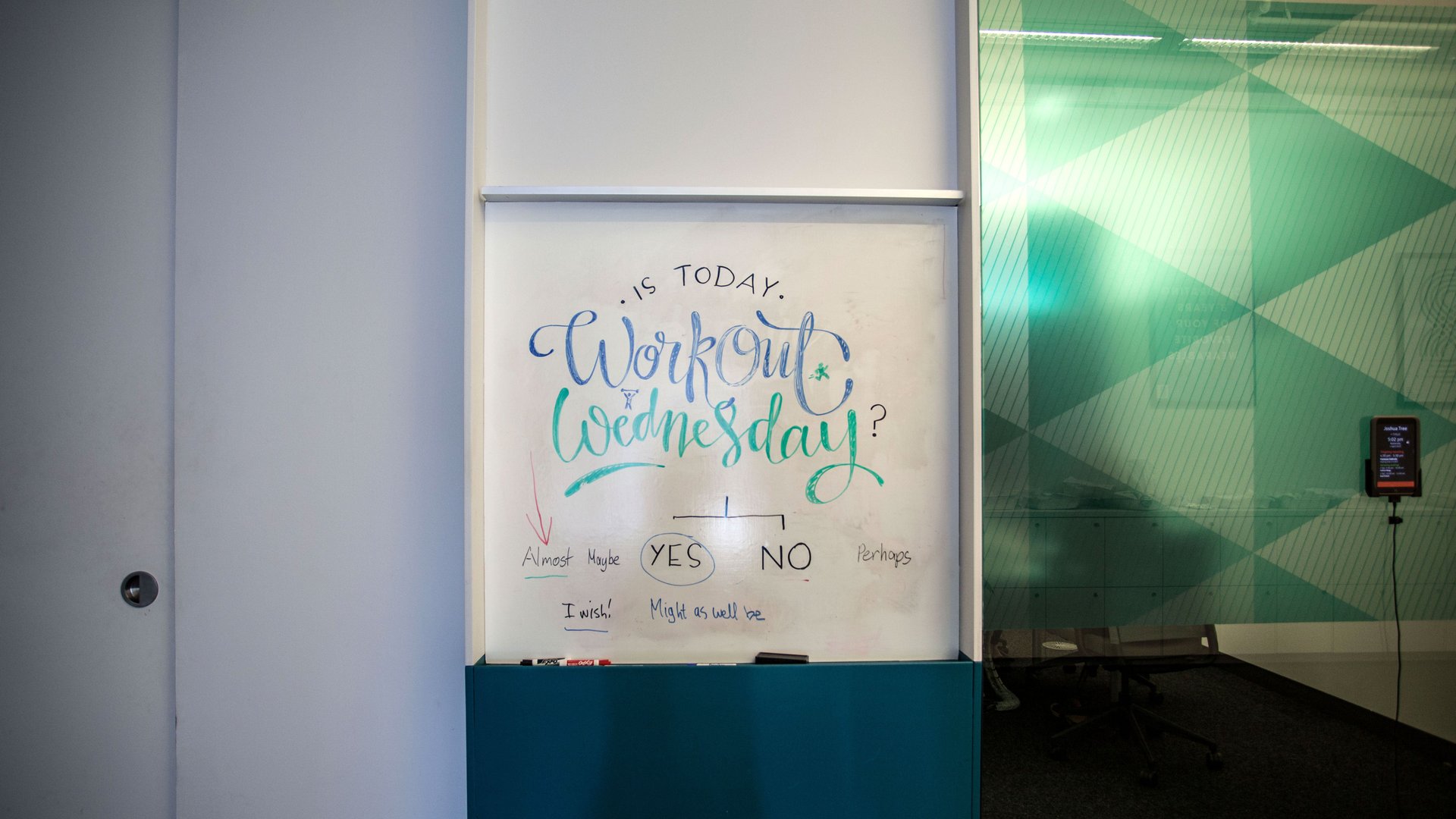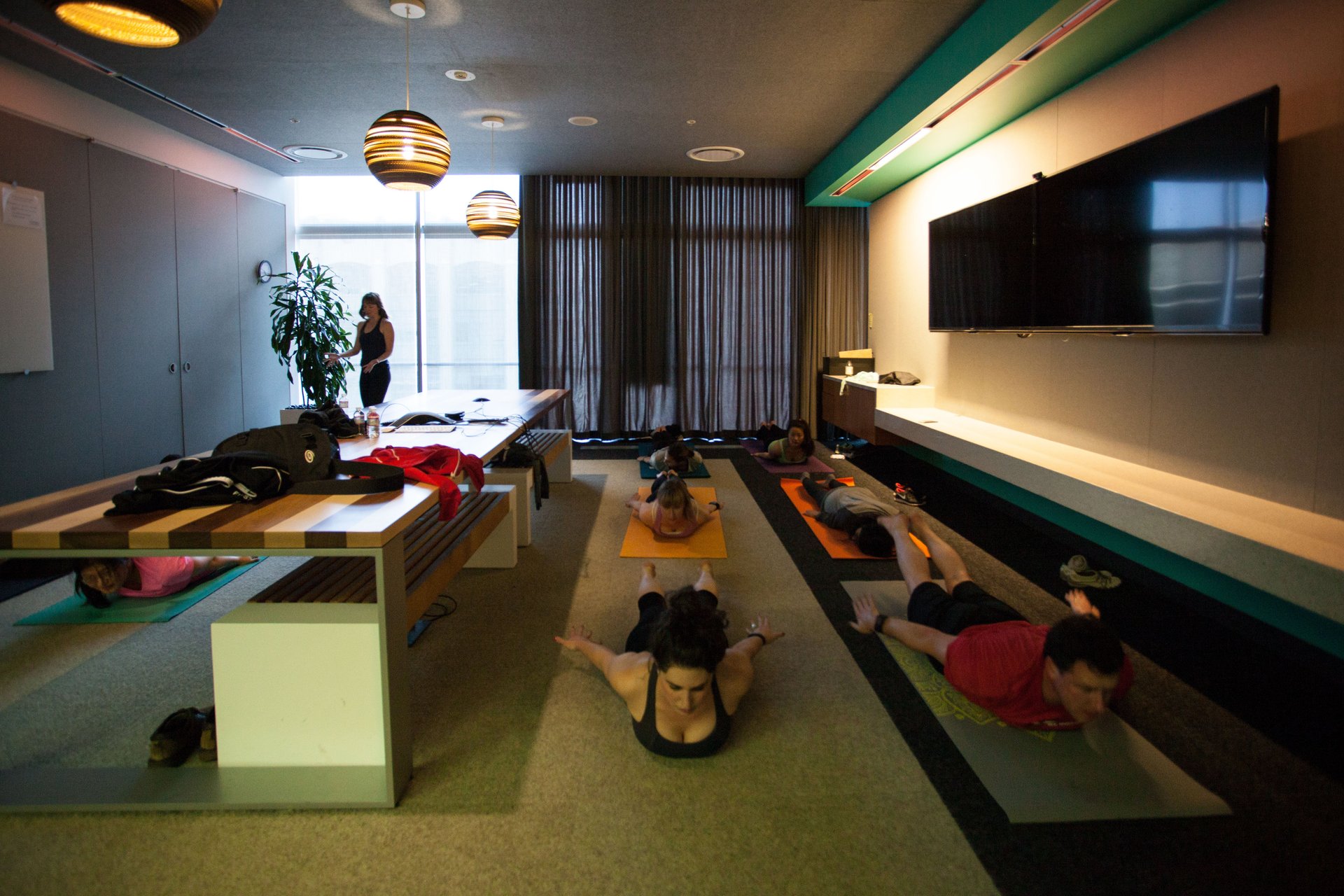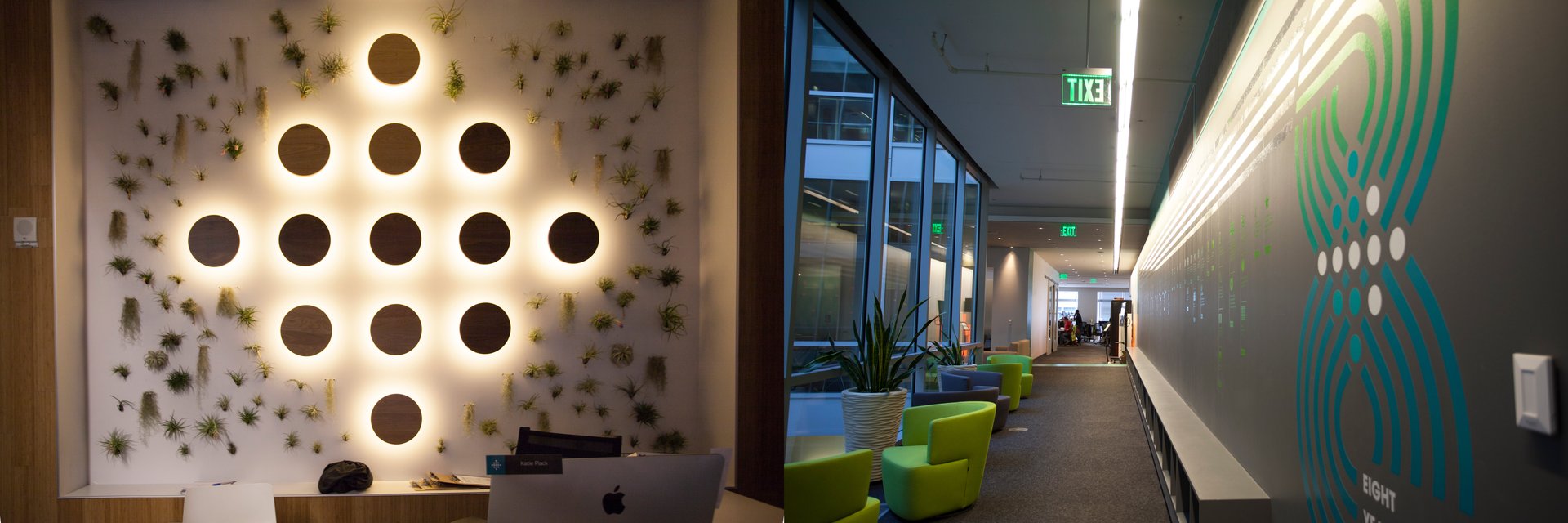This is how Fitbit employees monitor each other’s health
At Fitbit, there’s no such thing as a mid-week slump. By the time Wednesday rolls around, all employees know the drill: Show up at the office in sweats and yoga pants, and get ready to work out at a moment’s notice for Work Out Wednesday, or WOW for short.


At Fitbit, there’s no such thing as a mid-week slump. By the time Wednesday rolls around, all employees know the drill: Show up at the office in sweats and yoga pants, and get ready to work out at a moment’s notice for Work Out Wednesday, or WOW for short.
Work Out Wednesday, a weekly occurrence since 2013, is organized by the company’s FLIP committee (short for Fitbit Lives Its Passion). The internal group is made up of 15 employees and various subcomittees focused on nutrition, events, stress management, and work culture. ”We have a frenetic work environment,” human resources manager Taryn Ching tells Quartz. “Sometimes you need to take a break.”
Founded in 2007, Fitbit began selling fitness trackers before the term wearables went mainstream. The company started with one device that clipped onto people’s clothing and monitored steps, distance, calories burned, and floors climbed, but in recent years it has also released wrist-worn trackers, including two that monitor heart rate.
The company employs more than 550 people, and the work culture in its San Francisco office is a reflection of its mission to keep people active and healthy. Its kitchen pantries are stocked with healthy snacks and drinks, such as veggie chips and coconut water. A part of the dining area is dedicated to gym equipment, including a treadmill, elliptical, and indoor bike. Employees are constantly competing for bragging rights to the most steps logged.

For Work Out Wednesday, employees can drop in to classes scheduled throughout the day anytime there’s a break in their schedules, which generally run from 8:30am to 5:30pm. (Fitbit says it doesn’t track how many employees partake in Work Out Wednesday.)
Each week, one of Fitbit’s cofounders, James Park or Eric Friedman, sends out the Work Out Wednesday schedule to employees, encouraging the entire company to participate. A typical Wednesday might have six to nine activities planned from 9:30am to 6pm, though there are other workout classes scheduled throughout the week as well.
Fitbit brings in outside instructors for some of its workouts, but many of the classes are led by employees—sometimes even execs. One of the most popular events to date was when the cofounders led a push-up competition, which Park won.
Its martial arts class is taught by Tony Cacace, a mechanical engineer who grew up practicing the craft. “In class we build self-confidence and strength through guided stretching, breathing, striking, blocking, falling, and meditating,” he says.

The day’s schedule typically also includes kickboxing, yoga, pilates, and hip hop dance classes. But not everything is so regimented. Tom Elliot, a research electrical engineer, is personally a fan of coffee walks, an informal time to catch up with colleagues while going on a stroll. “Keeping healthy doesn’t have to be a big commitment,” he says. “To go for a brisk walk, you don’t need to change clothes, there’s no equipment, and you get to connect with people across the company.”
All employees at Fitbit have the option to work on motorized standing desks, which reduces the time and effort needed to adjust them for sitting or standing. Tim Rosa, vice president of marketing, uses an app to sync his workstation to his Fitbit account, so the desk automatically lowers and raises based on his activity level. Rosa—who’s often sporting a Fitbit tracker on each wrist (one for testing purposes)—likes to point out the stark contrast between Fitbit’s culture and that of his prior employer, Electronic Arts. ”For 10 years, I put people on a couch, and now I take people off the couch,” he says.
Drawing from his experience at EA, he says Fitbit is experimenting with gamification features to encourage friendly competition between departments for its external corporate wellness programs. Employers, including 30 of the Fortune 500 companies, outfit their employees with Fitbit trackers with the goal of improving their’ health. This ultimately saves the companies money in terms of medical costs and reduced sick days.
That sense of competition is what drives Fitbit employees, who can track each others’ progress by checking an online leaderboard. “Competition is inherent in all of us,” he says. Fitbit says its various company-wide challenges have driven a 10% increase in employees’ number of steps. Internal surveys have found that 95% of employees believe health and wellness is an integral part of Fitbit’s culture, and that 87% consider the company a good or great healthy workplace, says Ching.
